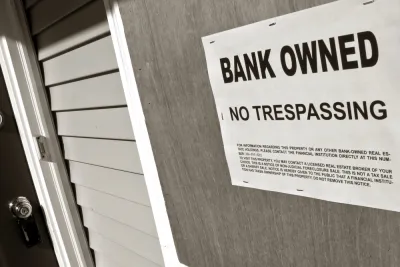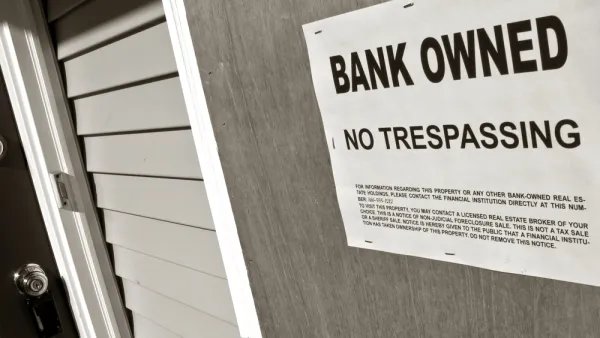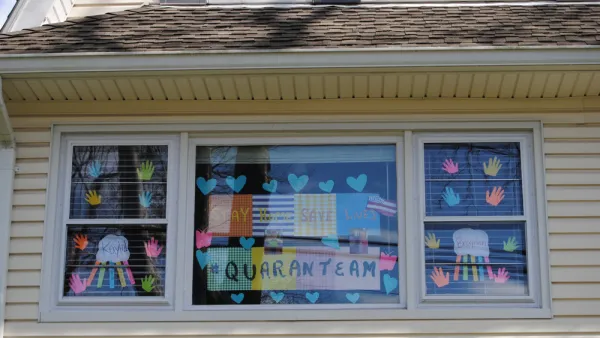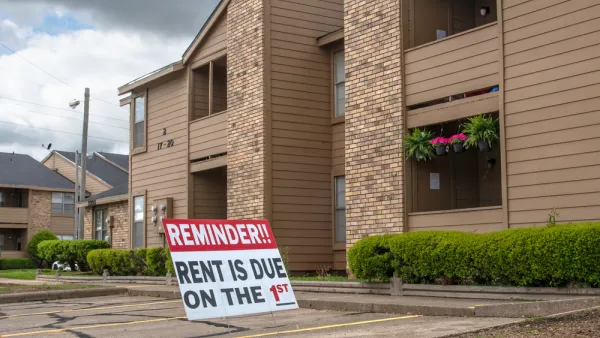Although homeowners have so far accessed financial relief from the pandemic much more easily than renters, housing counselors are bracing for a foreclosure crisis as forbearance terms start to end.

When Nora Hertel’s husband lost his job working at a small, private school for kids with special needs earlier this year due to the pandemic, their two-income household was instantly scaled down to one. Hertel, a marketing communications specialist at NCALL Research Inc., says she and her husband initially paid their mortgage with money from savings. As months passed, however, the couple started to miss their 15-day grace period and receive penalties.
“It was just getting to the point that by the time I paid the mortgage, the next bill would come in,” Hertel recalls. “And then there were times that I would pay the mortgage and then end up late on my credit card and other things. We just didn’t have enough and I had to choose one or the other.”
For homeowners like the Hertels, the CARES Act provided an option for financial relief by stipulating that single-family homes with a government-backed mortgage are automatically eligible for forbearance if they have been affected, directly or indirectly, by COVID-19. Homeowners who meet this criterion and request assistance are entitled to an initial forbearance period of up to 180 days (6 months) and a one-time extension of an additional 180 days, should they choose to take advantage of it.
Though the CARES Act provision has acted as a safeguard to prevent homeowners from suffering complete devastation at the hands of the pandemic, it has not come without challenges. As with the nationwide eviction moratoriums, housing advocates and counselors say that the conditions of the provision are unclear to the average consumer, particularly relating to their rights and how to manage and exit their forbearance term. As a result, housing advocates and counselors are bracing for a foreclosure crisis in early 2021 once the provision expires on Dec. 31. It’s unclear, however, just how severe next year’s pending crisis might be.
A Skewed Picture
While there is no question that there will be a foreclosure crisis, housing experts say ...
FULL STORY: The Foreclosure Crisis Waiting for Us in January

Analysis: Cybertruck Fatality Rate Far Exceeds That of Ford Pinto
The Tesla Cybertruck was recalled seven times last year.

National Parks Layoffs Will Cause Communities to Lose Billions
Thousands of essential park workers were laid off this week, just before the busy spring break season.

Retro-silient?: America’s First “Eco-burb,” The Woodlands Turns 50
A master-planned community north of Houston offers lessons on green infrastructure and resilient design, but falls short of its founder’s lofty affordability and walkability goals.

Test News Post 1
This is a summary

Analysis: Cybertruck Fatality Rate Far Exceeds That of Ford Pinto
The Tesla Cybertruck was recalled seven times last year.

Test News Headline 46
Test for the image on the front page.
Urban Design for Planners 1: Software Tools
This six-course series explores essential urban design concepts using open source software and equips planners with the tools they need to participate fully in the urban design process.
Planning for Universal Design
Learn the tools for implementing Universal Design in planning regulations.
EMC Planning Group, Inc.
Planetizen
Planetizen
Mpact (formerly Rail~Volution)
Great Falls Development Authority, Inc.
HUDs Office of Policy Development and Research
NYU Wagner Graduate School of Public Service




























